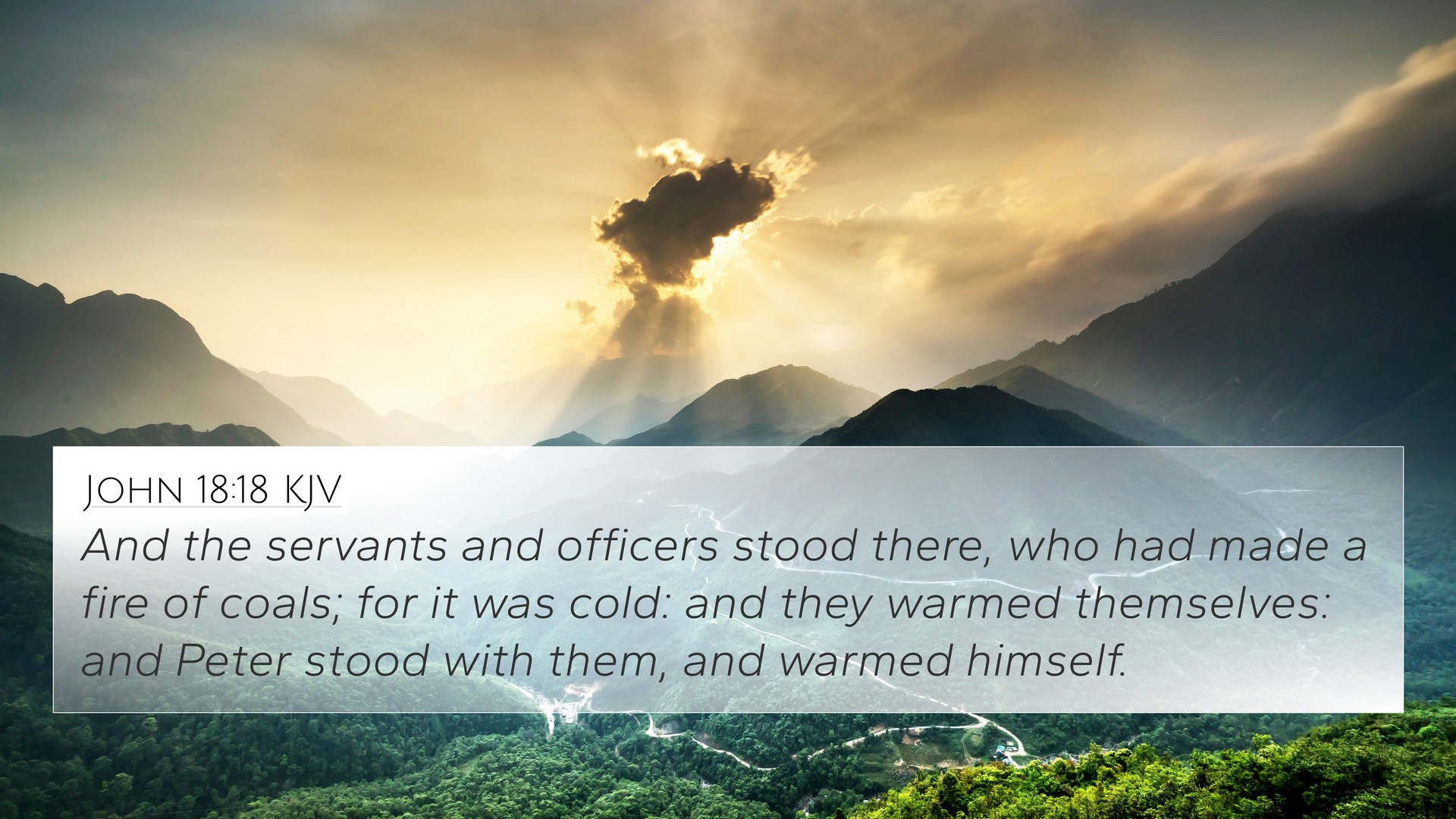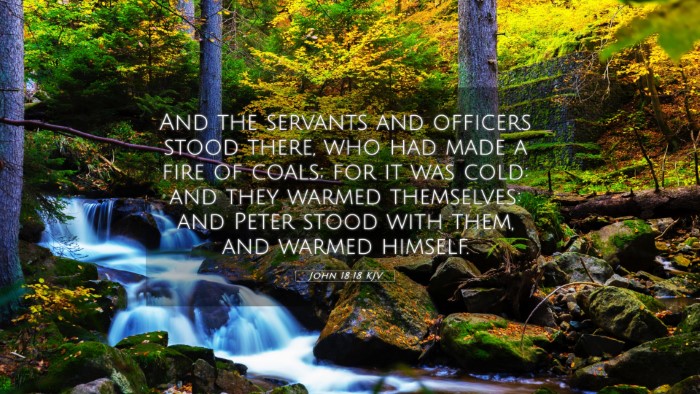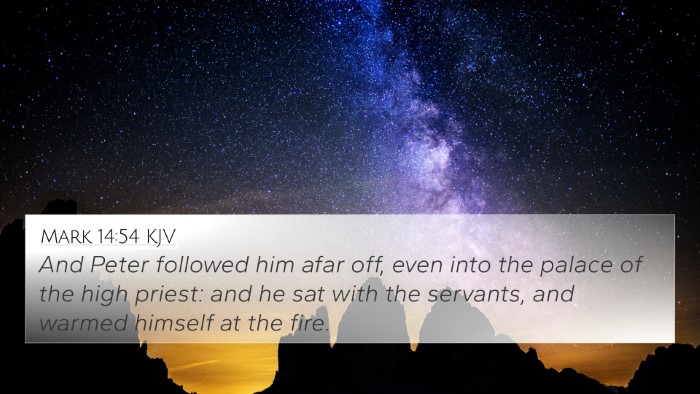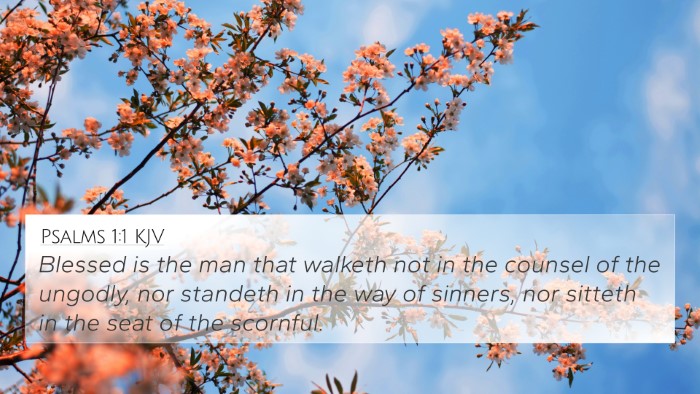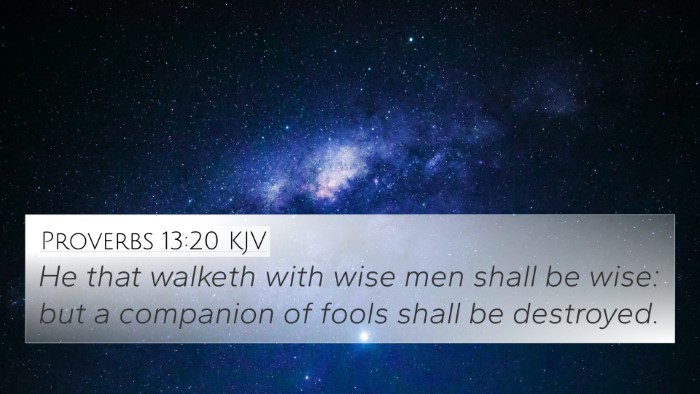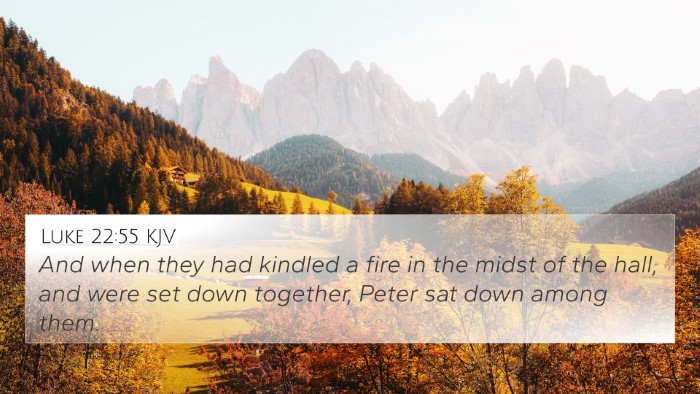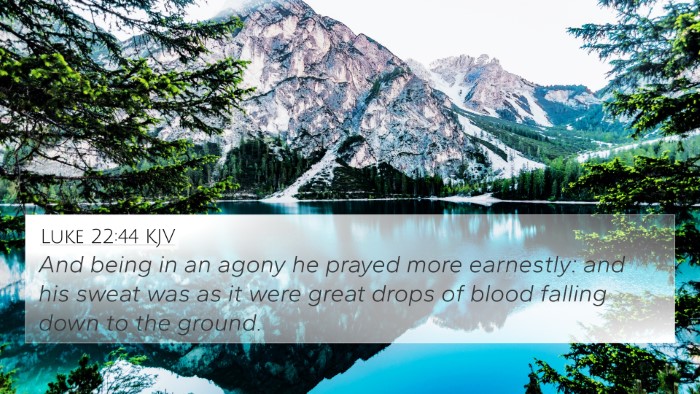Understanding John 18:18
Verse Context: John 18:18 states, "And the servants and officers stood there, who had made a fire of coals; for it was cold: and they warmed themselves: and Peter stood with them, and warmed himself." This scene unfolds during a critical moment in the Passion narrative, as Peter follows Jesus after His arrest.
Summary of Insights
This verse presents a vivid image of Peter's denial and the circumstances surrounding it. The gathering around the fire not only creates a physical warmth but also serves as a symbolic representation of social comfort amidst trial. Below are the combined insights from notable public domain commentaries:
-
Matthew Henry's Commentary:
Matthew Henry reflects on how the coldness of the night represents the spiritual state of Peter. Henry emphasizes that Peter’s desire to be close to Jesus, even in a hostile environment, highlights the conflict between Peter's unwavering intentions and his impending denial.
-
Albert Barnes’ Notes:
Barnes points out that the fire symbolizes comfort in a time of distress. He notes Peter’s attempt to mingle with the crowd signifies his struggle between loyalty to Christ and the fear of consequence. Barnes emphasizes that Peter’s warming by the fire foreshadows the spiritual cooling of faith.
-
Adam Clarke's Commentary:
Clarke identifies the fire as a metaphor for the trials that every believer faces. He argues that it reflects the temptations to which Peter succumbs. Clarke discusses the significance of Peter’s decision to warm himself with the officers, suggesting he transitions from a disciple to a conditional follower.
Bible Verse Cross-References
John 18:18 can be cross-referenced with the following scriptures to glean deeper insights into its meaning and context:
- Matthew 26:69-75: The account of Peter’s denial reinforces the themes of fear and betrayal present in John 18:18.
- Luke 22:54-62: This passage further elaborates on Peter's denial, providing a detailed narrative that connects to the events of John 18.
- John 13:38: Jesus foretells Peter’s denial, establishing a thematic foreshadowing that links back to John 18:18.
- John 21:15-17: After the resurrection, Jesus restores Peter, illustrating a redemptive arc from the denial depicted in John 18:18.
- Isaiah 53:3: This scripture speaks of Jesus being acquainted with grief, resonating with the solemn atmosphere surrounding Peter in the moment captured by John 18:18.
- 1 Peter 5:8: Encouragement to stand guard against temptations can be seen as a lesson Peter learned following his denial.
- Mark 14:66-72: This scripture further emphasizes Peter’s complicated relationship with Jesus during the time of accusation and fear.
Thematic Connections
Analyzing John 18:18 with other scriptures establishes a network of thematic connections that illustrate the complexity of discipleship:
- Fear vs. Faith: The tension between Peter’s fear of repercussions and his faith in Jesus embodies a recurring theme in the Gospels.
- Comfort in Adversity: The warmth of the fire serves as a deceptive comfort during spiritual trials, echoed throughout various scriptures.
- Repentance and Restoration: The journey from denial to restoration in Peter's life captures a central message of hope and redemption in the Christian faith.
Conclusion
John 18:18 encapsulates profound lessons about loyalty, fear, and the human condition in the face of trials. By employing tools for Bible cross-referencing and engaging in comparative Bible verse analysis, readers can deepen their understanding of this passage and its related themes throughout scripture.
For those involved in Bible study, it’s important to not only read these verses in their immediate context but to explore themes that connect different parts of Scripture, leading to a more comprehensive understanding of biblical teachings. Utilizing a Bible concordance or a cross-reference Bible study guide can further enhance the journey of discovery and interpretation.
As you continue to explore connections between Bible verses, consider how these inter-Biblical dialogues shape our understanding of faith and practice in daily life.
